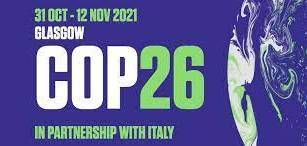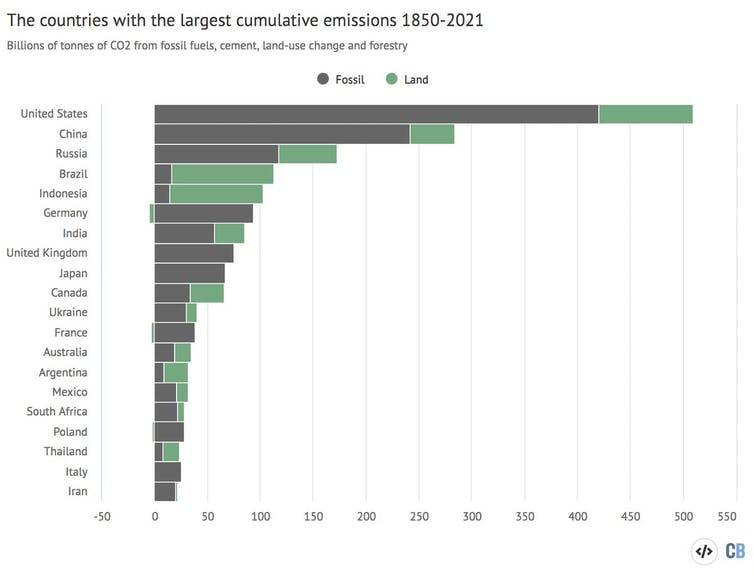
If the 201 Paris Agreement 5 provided the framework for countries to fight against climate change, Glasgow, six years later, was the first major test of this watermark of world diplomacy.
What have we learned from these two weeks of statements by leaders of mass demonstrations and parallel agreements on coal, stop funding fossil fuels and deforestation, in addition to Glasgow Climate Pact finally signed?
From phasing out coal to loopholes in the carbon market, here's what you need to know:
1. Prog ress insufficient in the matter ry r é é reduction of tasks
The Glasgow Climate Pact is a small step forward, not the breakthrough needed to curb the worst impacts of climate change. The British government, as host and thus president of the COP26, wanted to " keep alive 1.5 ° C ," the strongest objective of the Paris Agreement. But, at best, we can say that the goal of limiting global warming to 1.5 ° C survives with respiratory assistance: she has a pulse but is almost dead.
The Paris Agreement states that temperatures should be limited to "well below" 2 ° C above pre-industrial levels, and that countries should "continue to strive" to limit warming to 1 5 ° C. Before the COP26, the world was on track to achieve a warming of 2.7 ° C , based on countries' commitments and pending changes in technology. Announcements made at COP26, including new commitments to reduce emissions this decade by some key countries, reduced that figure to an optimum estimate of 2.4 ° C.
Other countries have announced long-term net goals. One of the most important was the commitment of India to achieve zero net emissions by 2070. The country has said it soon would start with a massive expansion of renewable energy over the next ten years to represent 50% of its total use, reducing its emissions by 1 billion tonnes by 2030 (out of a current total of around 2.5 billion).
Nigeria , a fast-growing countries, is also committed to have zero net emissions by 2060. The countries that represent 90% of global GDP are committed to the goal of zero emissions by the middle of this century.
Global warming of 2.4 ° C is still clearly far from 1.5 ° C. What remains to be resolved is the gap in short-term emissions. It looks like global emissions will stabilize this decade rather than show the drastic reductions needed to be on the 1.5 ° C trajectory foreseen in the pact.
There is a gap between the long-term zero emission goals and the emission reduction plans of this decade.
2. The door is ajar for further cuts in the near future
The final text of the Glasgow Pact notes that current national climate plans, Nationally Determined Contributions (NDCs), fall far short of what is needed to reach 1.5 ° C. It also calls on countries to return to it. next year with new updated plans.
Under the Paris Agreement, new climate plans are required every five years. This is why Glasgow, five years after Paris (delayed due to covid-19), was such an important gathering. Delaying new climate plans until next year, instead of waiting another five years, can keep 1.5 ° C alive for another 12 months, and gives campaigners one more year to try to influence climate policies governments. It also opens the door to demand for further CDN updates from 2022 to help increase ambition during this decade.
The Glasgow Climate Pact also stipulates that the use of coal should be phased out, along with fossil fuel subsidies. The formulation is lower than the initial proposals, as the final text requires only a "gradual reduction" and not a "phasing out" of coal, due to the last minute intervention of the India And “inefficient” subsidies. A subtle but nevertheless heavy semantic game.
However, this is the first time that fossil fuels have been mentioned in a press release from the UN climate negotiations.
In the past, Saudi Arabia and other countries have eliminated this problem. This is an important change, as it is finally recognized that the use of coal and other fossil fuels must be quickly reduced to face the climate emergency. The taboo on talking about the end of fossil fuels has finally been broken.
3. Rich countries continue to ignore their historic responsibility
Developing countries have asked for funds to pay for "loss and damage" such as the costs of the impacts of cyclones and sea level rise. Small island states and climate-vulnerable countries say the emissions history of major polluters have resulted in these impacts and funding is therefore necessary.
The country developed, led by the United States and the EU , have resisted any responsibility for the loss and damage, and vetoed the creation of a new fund for losses and damages, a way to support vulnerable nations, even if most countries claim it.

Top 20 contributors to cumulative CO2 emissions from 1850 to 2021, in billions of tonnes, broken down into fossil fuel and cement subtotals (gray), as well as land use and forestry (green) . CarbonBrief , CC BY-NC-SA
4. The shortcomings of the market é carbon could compromise the progr ess
Carbon markets could be a lifeline for the fossil fuel industry, allowing them to claim "carbon offsets" and go about their business (almost) as usual.
Six years later, after relentless negotiations, agreement was reached on Article 6 of the Paris Agreement, relating to market-based and non-market approaches to emissions trading. of carbon. The worst and greatest shortcomings have been resolved, but it is still possible for countries and companies to game the system .
Outside the framework of the COP, we need rules much clearer and stricter for the art carbon offset companies . Otherwise, it is hoped that non-governmental organizations and the media will highlight case carbon offsetting under this new regime, when new attempts to fill these gaps arise.
5. Thank Climate activists for their efforts: their next actions will be d e cisives
It is clear that powerful countries are moving too slowly and have made the political decision not to support a radical change in both greenhouse gas emissions and financing to help low-income countries adapt. to climate change and leave behind the era of fossil fuels.
But their people, and climate advocates in particular, are putting a lot of pressure on them. Indeed, there were huge protests in Glasgow, both during the Fridays for Future youth march and on Saturday's Global Day of Action, which far exceeded expected numbers.
This means that the next steps for activists and the climate movement are important. In the UK, efforts will be made to prevent the government from granting a license to operate the new Cambo oil field off the north coast of Scotland.
More actions should focus on financing fossil fuel projects, as activists want to cut emissions by depriving the industry of capital. Without these movements that put pressure on countries and businesses, including at COP27 in Egypt, we will not halt climate change and protect our precious planet.
Sources:
 Simon Lewis Professor of Global Change Science at Leeds University and UCL
Simon Lewis Professor of Global Change Science at Leeds University and UCL Marc Maslin Professor of Earth System Sciences, UCL
Marc Maslin Professor of Earth System Sciences, UCL- The Conversation of the COP26, the conference on climate Glasgow
Publicado el 16-11-2021 10:37








Comentarios